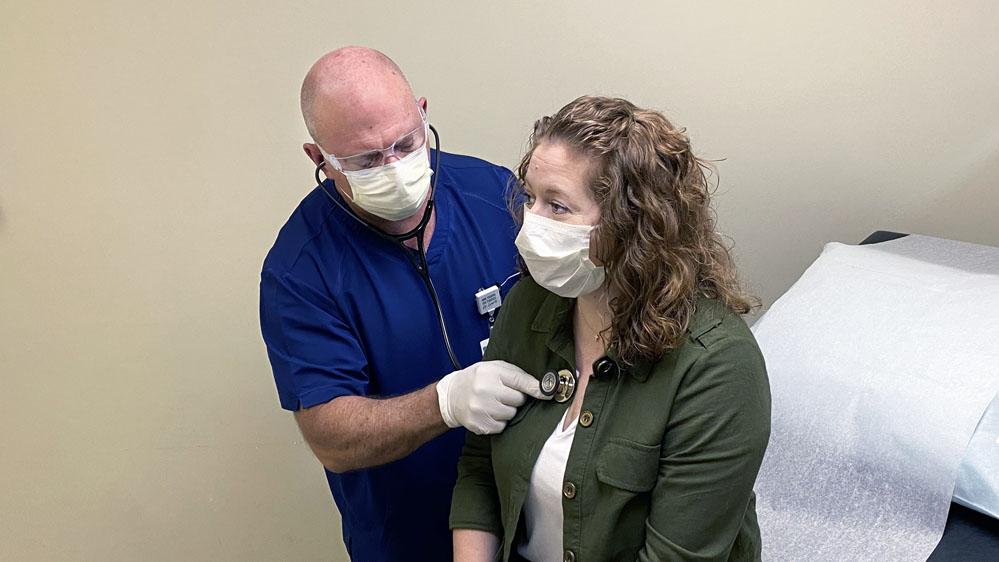What Is a Coronavirus?
Coronaviruses are a family of hundreds of viruses that circulate among and cause infectious disease in both humans and animals. The first human coronaviruses were discovered in the mid-1960s. The most recent coronavirus, SARS-CoV-19, causes coronavirus disease 2019 (COVID-19), which the World Health Organization declared a pandemic on March 11, 2020.

What Causes Coronaviruses?
Viruses, which are small infectious particles surrounded in a protein coating, take over and use normal, healthy cells to multiply. This damages or kills the cells, which may cause sickness or infectious disease.
Many coronaviruses originate in animals but sometimes transmit to humans. When humans become infected with a coronavirus, it can cause respiratory infection that ranges in severity depending on the type.
Types of Coronavirus
There are hundreds of coronaviruses, but only seven have been identified in humans. Four of those, including 229E, NL63, OC43 and HKU1, usually cause mild to moderate symptoms, such as those associated with the common cold. The other three types of coronaviruses are capable of causing severe respiratory illness:
- MERS-CoV, the virus that causes Middle East respiratory syndrome (MERS)
- SARS-CoV, the virus that causes severe acute respiratory syndrome (SARS)
- SARS-CoV-2, the virus that causes COVID-19
Are Coronaviruses Curable?
Coronaviruses are not curable, and the few treatments available focus on symptom management. COVID-19 vaccines can protect against the SARS-CoV-2 virus, but no vaccines exist for the viruses that cause MERS and SARS.
Difference Between Coronaviruses and the Flu
Like coronaviruses, influenza is a virus. Influenza causes flu, a respiratory illness that infects, on average, 8% of the U.S. population every year. Flu can cause mild to severe symptoms, and, like coronavirus disease, may even lead to death. Mild to moderate symptoms that can occur with both viruses include fever, cough, chills, muscle pain, headache and sore throat.
The way the viruses spread in humans is mostly the same. They mainly transmit via small droplets that exit your nose and mouth when you talk, sneeze or cough. These droplets can enter another nearby human’s nose or mouth. Both viruses can live on surfaces for certain amounts of time. If you touch a surface with either virus on it and then touch your mouth, nose or eyes, the virus may enter your body. However, this is not thought to be a primary method of disease spread.
The only way to know if you have the flu or a coronavirus is to get tested. Your primary care provider can advise you on testing when it is necessary.
Preventing the Spread
- Wash your hands often. Wash your hands with soap and water for 20 seconds. If soap and water are unavailable, use hand sanitizer with at least 60% alcohol.
- Avoid touching your eyes, nose and mouth if you have not recently washed your hands.
- Cover your face when your cough or sneeze. If you don’t have a tissue, use the inside of your elbow. Throw tissues in the garbage immediately after you use them and wash your hands immediately afterward.
- Avoid close contact with others who are sick or if you are sick.
- Regularly clean and disinfect frequently touched surfaces, such as your phone, doorknobs and countertops.
COVID-19 Recovery Program
Helping People Recover
People recovering from COVID-19 can experience a variety of symptoms:
- General fatigue
- Shortness of breath
- Endurance/balance issues
- Decreased blood oxygen levels
- Memory loss + word-finding difficulties
- Executive-functioning difficulties (e.g., struggle with planning, problem-solving, time management, etc.)
The Beaufort Memorial COVID-19 Recovery Program helps patients recovering from COVID-19 understand their symptoms and work through their limitations to help them move beyond the virus.
We treat COVID-19 patients who are experiencing long-term effects (greater than four weeks) from their infection. This condition is sometimes referred to as long-haul COVID-19 or long COVID-19. This includes:
- Patients recovering from a hospital stay or "long-haulers"
- Patients who did not require hospitalization but are recovering from COVID-19 and bed rest-related impairments (e.g., decreased balance, fatigue, "brain fog")
Program Goals
The goal of the program is to address the physical and cognitive decline that affect:
- Speech
- Balance
- Strength
- Cognition
- Swallowing
- Joint mobility
- Cardiovascular endurance
- Memory/executive functioning
The team is comprised of pulmonologists; pulmonary rehabilitation professionals; and physical, occupational and speech therapists who have experience working with COVID-19 patients in the hospital and/or outpatient setting. Their thorough understanding of a patient’s progression and symptoms during recovery led to the development of a model of care for patients with COVID-19 related complications.
Locations
The COVID-19 Recovery Program is provided at the Okatie and Beaufort locations:
Beaufort Memorial Outpatient Rehabilitation - Okatie
122 Okatie Center Boulevard North, Suite 200
Okatie, SC 29909
Beaufort Memorial Pulmonary Specialists
122 Okatie Center Boulevard North, Suite 220
Okatie, SC 29909
Beaufort Memorial Pulmonary Specialists - Beaufort
300 Midtown Drive, Lowcountry Medical Group - First Floor
Beaufort, SC 29906
Beaufort Memorial Outpatient Rehabilitation
990 Ribaut Road
Beaufort, SC 29902
Contact Us
A provider referral is required to receive services through the COVID-19 Recovery Program.
Speak to your primary care provider or specialist about your needs or call 843-522-5593 with questions.
